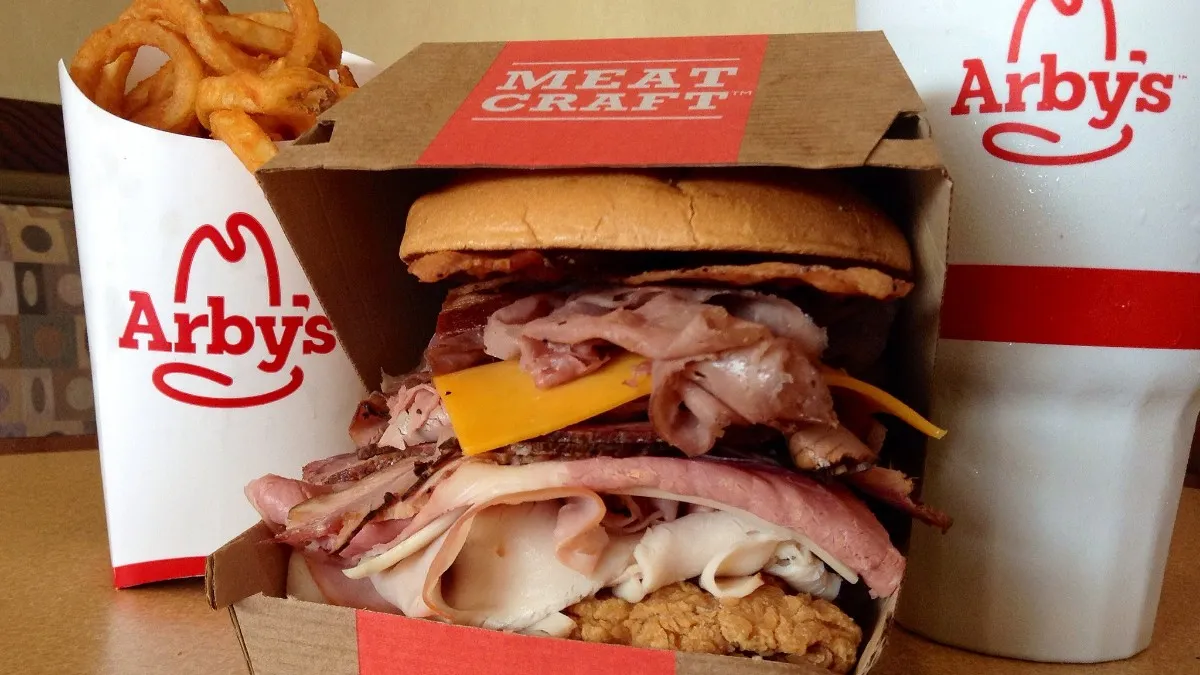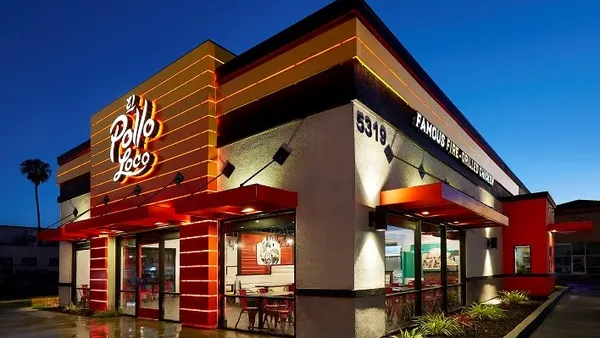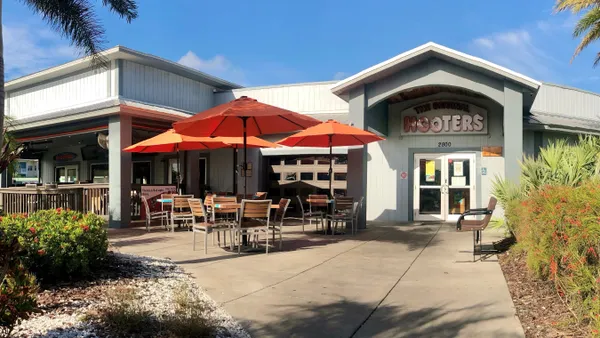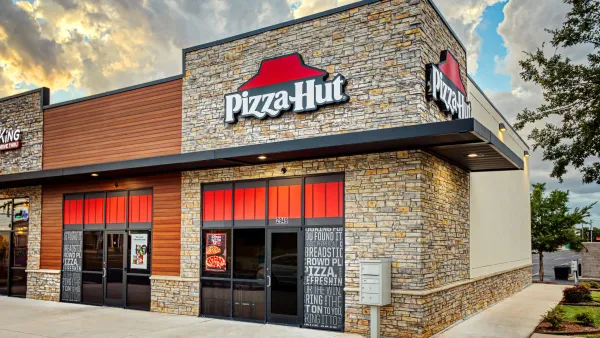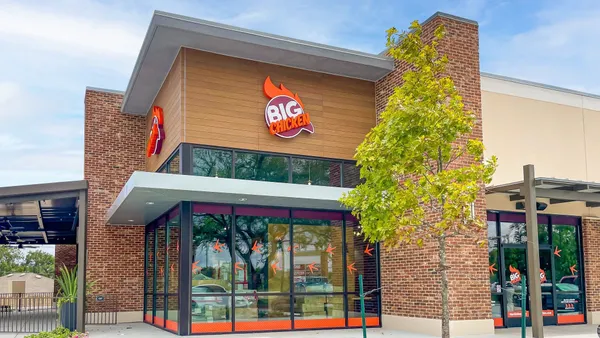Dive Brief:
- Franchisee Flynn Restaurant Group acquired US Beef Corp. this week, adding 368 Arby's units to its more than 1,200-restaurant portfolio that includes Applebee's, Taco Bell and Panera Bread. Terms of the deal were not disclosed, according to Restaurant Business.
- The acquisition will add $400 million in sales to Flynn, making the group a $2.3 billion company and the largest franchisee of any kind in the country.
- U.S. Beef Corp., Arby's largest franchisee, turned in a systemwide sales increase of 2.7% in 2017, making it a particularly attractive acquisition target for the country’s largest franchisee.
Dive Insight:
Arby's has been on a roll of late, benefiting from positive same-store sales since its "We Have the Meats" campaign launched in 2013. It's no surprise it would be on the franchisee's radar, especially as Flynn's other brands also experience momentum. In Q2, Applebee's generated its largest gain — 5.7% in same-store sales in more than a decade. Taco Bell is Yum Brands' golden child, boasting a 5% jump in same-store sales growth during its most recent quarter, and Panera said it will close the year doubling its digital sales from $1 billion to $2 billion.
The Flynn acquisition also fits a general trend across the industry — investors and private equity firms are bullish on consolidation, especially as lending rates remain low. This latest acquisition is part of a significant period of brand consolidation, moving at a rate the industry has not seen before, according to Restaurant Business.
As the industry continues to intensify, consolidation offers a number of benefits, including group purchasing, economies of scale and the reduction of central costs. Further, consolidation is becoming one of the only ways left to grow in a saturated market.
What's interesting about this recent wave of acquisitions is that the deals have been part of a subset of M&A. Holding companies are not unusual in the industry — Darden and Yum Brands have been doing it for years. But Arby's, as a subsidiary and a flagship brand for Inspire Brands, added Buffalo Wild Wings, Rusty Taco and Sonic Drive-In to its resume. This type of consolidation creates a shared-services structure that enables each brand to benefit from the strengths of the others, according to QSR. But what happens when holding companies leverage shared services among multiple brands and franchisees do the same with other brands, especially as technology and delivery continue to blur the lines between segments? Industry consolidation isn't expected to slow anytime soon, so this will be interesting to watch.


